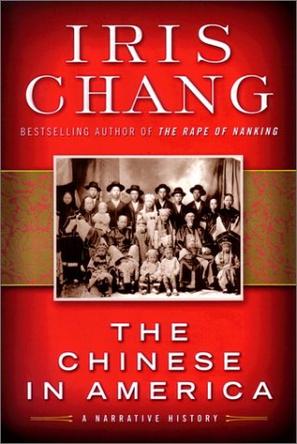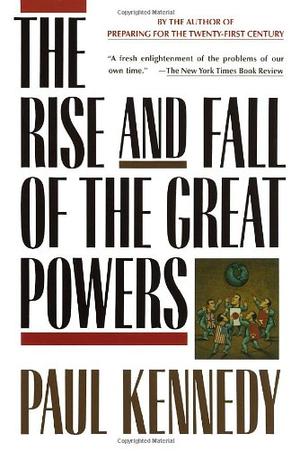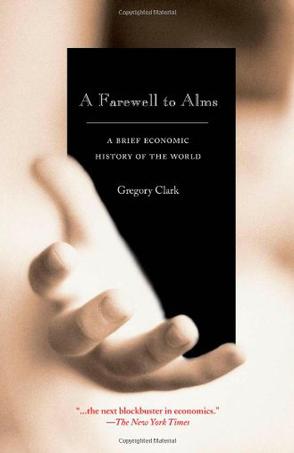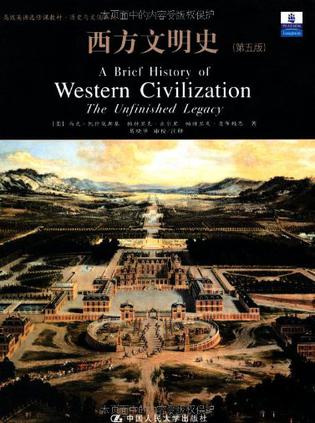-

法国大革命史
《法国大革命史》是法国著名历史学家路易·马德林的历史巨作,从当时法国国内外的历史大背景出发,讲述了法国三个等级之间的矛盾以及由此引发的法国大革命,革命期间君主立宪派、吉伦特派、雅各宾派、反法联盟、热月党人、督政府、拿破仑等各个党派势力之间的反复争斗,制宪议会、立法会议、国民公会等立法机构和巴黎人民三次大起义、热月政变、雾月政变等剧变之后的权力更迭,详细介绍了扫荡欧洲封建势力、标志19世纪文明开始的法国大革命,让我们清楚地认识了它的历史地位和作用。 -

The Chinese in America: A Narrative History
Iris Chang made headlines in 1997 with the publication of The Rape of Nanking-a meticulously researched and brilliantly rendered examination of the sacking of that great city by the Japanese during World War II. Many readers of The Rape of Nanking responded to its themes of the fight for justice and the assertion of cultural identity-themes Chang expands upon in her new book. Chang, the daughter of second-wave Chinese immigrants, has written an extraordinary narrative that encompasses the entire history of one of the fastest growing ethnic groups in the United States, an epic story that spans 150 years and continues to the present day. Chang takes a fresh look at what it means to be an American and draws a complex portrait of the many accomplishments of the Chinese in their adopted country, from building the transcontinental railroad to major scientific and technological advances. A sensitive, deeply moving story of individuals whose lives have shaped and been shaped by this history, The Chinese in America is a saga of raw human tenacity and a testament to the determination of a people to forge an identity and destiny in a strange land. Chang is the author of the best-selling Rape of Nanking (1997), a very disturbing but well-prepared and necessary account of the sacking of that important Chinese city by the Japanese army in the late 1930s. Her writerly acumen is again in evidence in her latest book, which, in her words, tells an epic story--and, indeed, it is shown to be exactly that. Her purview is wide: the immigration of Chinese people to the U.S. from the early nineteenth century to the end of the twentieth. Chinese immigration falls naturally into three waves: those who came here to be laborers during the days of the California gold rush and the building of the transcontinental railroad, those who came to escape the 1949 Communist takeover, and those who came in the 1980s and 1990s as relations between China and the U.S. eased somewhat. The reasons why the Chinese came to the U.S. are only half the story; the other half consists of what they did here and how they were received. But this is not just a bland narration of events. Chang threads personal stories of individuals she came across in her research into her book, making it a much more human account. A final chapter looks at possible future definitions of racial identity. This is history at its most dramatic and relevant, and the book deserves all the attention it undoubtedly will receive. Brad Hooper In this outstanding study of the Chinese-American community, the author surpasses even the high level of her bestselling Rape of Nanking. The first significant Chinese immigration to the United States came in the 1850s, when refugees from the Taiping War and rural poverty heard of "the Golden Mountain" across the Pacific. They reached California, and few returned home, but the universally acknowledged hard work of those who stayed and survived founded a great deal more than the restaurants and laundries that formed the commercial core-they founded a new community. Chinese immigrants building the Central Pacific Railroad used their knowledge of explosives to excavate tunnels (and discourage Irish harassment). Chinese workers also married within the Irish community, spread across America and survived even the racist Chinese Exclusion Act of 1880, which lost much of its impact when San Francisco's birth records were destroyed in the earthquake and fire of 1906 and no one could prove that a person of Chinese descent was not native born. Chang finds 20th-century Chinese-Americans navigating a rocky road between identity and assimilation, surviving new waves of immigrants from a troubled China and more recently from Taiwan and Hong Kong. Many Chinese millionaires maintain homes on both sides of the Pacific, while "parachute children" (Chinese teenagers living independently in America) are a significant phenomenon. And plain old-fashioned racism is not dead-Jerry Yang founded Yahoo!, but scientist Wen Ho Lee was, according to Chang, persecuted as much for being Chinese as for anything else. Chang's even, nuanced and expertly researched narrative evinces deep admiration for Chinese America, with good reason. Iris Chang, author of Thread of the Silkworm as well as The Rape of Nanking, is the recipient of the MacArthur Foundation's Program on Peace and International Cooperation Award as well as the Woman of the Year Award from the Organization of Chinese Americans. Height (cm) 24.3 Width (cm) 16.4 -

The Rise and Fall of the Great Powers
The Rise and Fall of the Great Powers: Economic Change and Military Conflict From 1500 to 2000, by Paul Kennedy, first published in 1987, explores the politics and economics of the Great Powers from 1500 to 1980 and the reason for their decline. It then continues by forecasting the positions of China, Japan, the European Economic Community (EEC), the Soviet Union and the United States through the end of the 20th century -

A Farewell to Alms
Why are some parts of the world so rich and others so poor? Why did the Industrial Revolution--and the unprecedented economic growth that came with it--occur in eighteenth-century England, and not at some other time, or in some other place? Why didn't industrialization make the whole world rich--and why did it make large parts of the world even poorer? In A Farewell to Alms, Gregory Clark tackles these profound questions and suggests a new and provocative way in which culture--not exploitation, geography, or resources--explains the wealth, and the poverty, of nations. Countering the prevailing theory that the Industrial Revolution was sparked by the sudden development of stable political, legal, and economic institutions in seventeenth-century Europe, Clark shows that such institutions existed long before industrialization. He argues instead that these institutions gradually led to deep cultural changes by encouraging people to abandon hunter-gatherer instincts-violence, impatience, and economy of effort-and adopt economic habits-hard work, rationality, and education. The problem, Clark says, is that only societies that have long histories of settlement and security seem to develop the cultural characteristics and effective workforces that enable economic growth. For the many societies that have not enjoyed long periods of stability, industrialization has not been a blessing. Clark also dissects the notion, championed by Jared Diamond in Guns, Germs, and Steel, that natural endowments such as geography account for differences in the wealth of nations. A brilliant and sobering challenge to the idea that poor societies can be economically developed through outside intervention, A Farewell to Alms may change the way global economic history is understood. -

A Farewell to Alms
Why are some parts of the world so rich and others so poor? Why did the Industrial Revolution--and the unprecedented economic growth that came with it--occur in eighteenth-century England, and not at some other time, or in some other place? Why didn't industrialization make the whole world rich--and why did it make large parts of the world even poorer? In A Farewell to Alms, Gregory Clark tackles these profound questions and suggests a new and provocative way in which culture--not exploitation, geography, or resources--explains the wealth, and the poverty, of nations. Countering the prevailing theory that the Industrial Revolution was sparked by the sudden development of stable political, legal, and economic institutions in seventeenth-century Europe, Clark shows that such institutions existed long before industrialization. He argues instead that these institutions gradually led to deep cultural changes by encouraging people to abandon hunter-gatherer instincts-violence, impatience, and economy of effort-and adopt economic habits-hard work, rationality, and education. The problem, Clark says, is that only societies that have long histories of settlement and security seem to develop the cultural characteristics and effective workforces that enable economic growth. For the many societies that have not enjoyed long periods of stability, industrialization has not been a blessing. Clark also dissects the notion, championed by Jared Diamond in Guns, Germs, and Steel, that natural endowments such as geography account for differences in the wealth of nations. A brilliant and sobering challenge to the idea that poor societies can be economically developed through outside intervention, A Farewell to Alms may change the way global economic history is understood. -

西方文明史
《西方文明史(第5版)》既紧紧把握了政治发展的线索,同时又兼顾了经济、文化等诸多领域,并运用“新史学”的方法,将底层大众的日常社会生活也囊括其中,力求多层次、多角度地揭示西方文明起源、发展、演进、更新的漫长历程和整体图景。在叙述和阐释西方文明历史的过程中,作者将大多数精力“一直聚焦在拓展出一种对西方文明的可靠的和易读的叙述上”,而并非要将之写成“一部百科全书”。因此,凡是与这一学术主旨不相关的庞杂内容一概不予叙述,而那些被长期忽略了的“普通男女的历史”则被纳入到叙事之中。此外,作者还从文明的“亲缘”关系出发,将斯拉夫文明作为西方文明的组成部分而不是边缘地带来加以叙述。